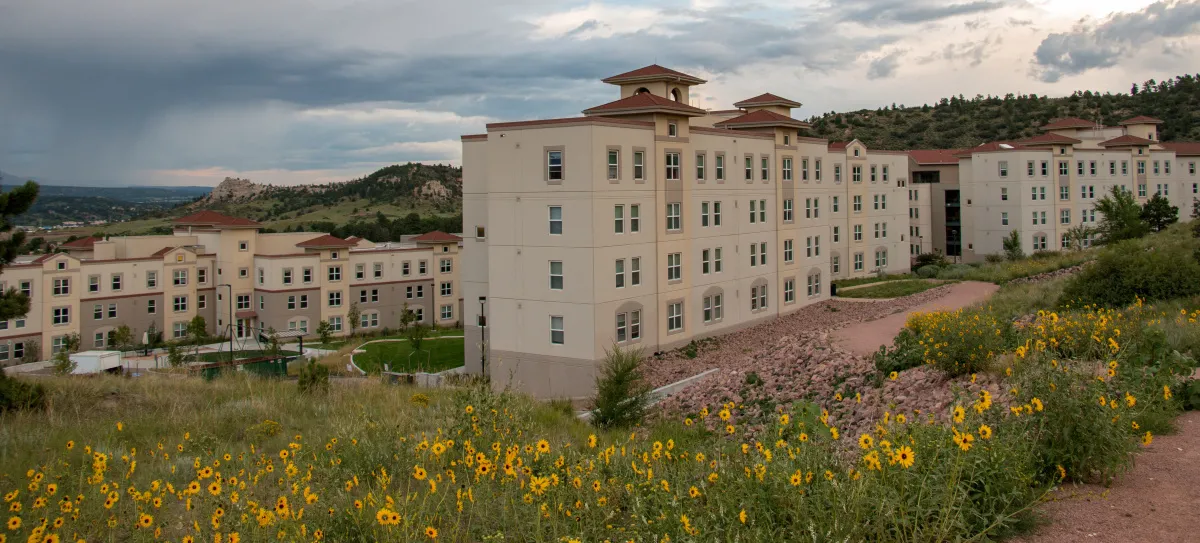
Meningitis Information
Important Information for Incoming UCCS Freshmen Living On-Campus: Meningococcal Vaccination Requirement
Colorado State Law requires that all incoming freshmen planning to live in student housing MUST provide proof of a documented dose of meningococcal vaccine or sign a waiver stating the following potential health risks associated with bacterial meningitis are understood and vaccination is being declined. The waiver form can be found at //www.uccs.edu/health-services/immunizations/meningitis. A booster dose of the vaccination is recommended if the first dose was given before the student's 16th birthday or if it has been three to five years since their last vaccination.
Meningococcal disease is a serious disease, caused by bacteria. Meningococcal disease is a contagious, but a largely preventable, infection of the spinal cord fluid and the fluid that surrounds the brain. Meningococcal disease can also cause blood infections. About 2,600 people get meningococcal disease each year in the United States; 10 to 15 percent of these people die, in spite of treatment with antibiotics. Of those who live, another 10 percent lose their arms or legs, become deaf, have problems with their nervous system, become mentally retarded, or suffer seizures or strokes.
Anyone can get meningococcal disease, but it is most common in infants less than one year of age and in people with certain medical conditions. Scientific evidence suggests that college students living in dormitory facilities are at a modestly increased risk of contracting meningococcal disease.
Immunization against meningococcal disease decreases the risk of contracting the disease. Meningococcal vaccine can prevent four types of meningococcal disease; these include two of the three most common in the United States. Meningococcal vaccine cannot prevent all types of the disease, but it does help to protect many people who might become sick if they do not get the vaccine. A vaccine, like any medicine, is capable of causing serious problems, such as severe allergic reactions. The risk of the meningococcal vaccine causing serious harm, or death, is extremely small. Getting a meningococcal vaccine is much safer than getting the disease.
More information can be obtained from the Vaccine Information Statement available at www.cdc.gov/vaccines/pubs/vis/default.htm. Students and their parents should discuss the risks and benefits of vaccination with their health care providers. Please complete either the waiver or the immunization form (to be completed by a health care provider). Documents can be mailed to UCCS Residence Life & Housing, 1010 Austin Bluffs Parkway, Colorado Springs, CO 80918. You may also scan documents and return via email at housing@uccs.edu or fax to 719-255-4326. Please ensure your student information is included on the cover page. If you are unsure if the University has already received proof of your immunizations you can contact the Student Health Center at 719-255-4444.